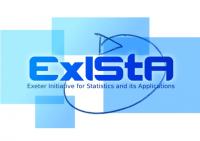What Went Wrong with the 2015 Election Polls
 The fourth joint ExIStA and RSS South West Local Group seminar took place on the 2nd July 2015 with invited speaker John Curtice, Professor of Politics at the University of Strathclyde and President of the British Polling Council. John is a regular media commentator on both British and Scottish politics and has been involved in coverage of elections since 1979. You may well have seen John on the BBC on election night covering the exit and opinion polls.
The fourth joint ExIStA and RSS South West Local Group seminar took place on the 2nd July 2015 with invited speaker John Curtice, Professor of Politics at the University of Strathclyde and President of the British Polling Council. John is a regular media commentator on both British and Scottish politics and has been involved in coverage of elections since 1979. You may well have seen John on the BBC on election night covering the exit and opinion polls.
The 2015 election looks as though it will join the 1970 and 1993 contests as elections when the polls were perceived to have got it “wrong”. Only when the results of the BBC/ITV/Sky exit poll were released did the first intimation come that in fact the Conservatives were well ahead. John gave us a fascinating talk on the performance of the polls in the 2015 election, describing how the polls were conducted and assessing some of the possible reasons why they overestimated Labour and underestimated Conservative support.
Please note that John gave this talk in a personal capacity, and not in his role as President of the British Polling Council.
There are two main ways in which opinion polls are conducted: over the internet using a stratified random sample drawn from a volunteer online panel, or via the telephone from a random digit dialling/quota sample of landline and mobile respondents. John outlined how these samples are then commonly adjusted for various demographics, reported propensity to vote, previous vote/party identification, refusals, and so on, to create a sample of respondents that is more representative of the population.
John then discussed some of the possible explanations for why the polls may have gotten it wrong, including a late swing, “shy Tories”, “lazy Labour”, question order/wording, and issues with poor samples that are inadequately weighted, i.e., adjusted. Recall surveys of those interviewed before polling day and attempts to recalibrate the final polls via different weighting schemes were some of the techniques explored to assess these possible explanations.
John’s initial conclusions were that there was likely no more than a small late swing, that there may have been some “shy Tory” effect but perhaps no more than some polls were already anticipating, and that there should be caution in overplaying the “lazy Labour” thesis. It appears that the effect of question placement is still to be addressed and that perhaps the main issue remains that of the difficulty in obtaining a representative sample of voters.
The underestimation of the Conservative lead over Labour in the 2015 election has led many commentators to question the value and robustness of polling methodology. In response to this an independent inquiry has been called by the British Polling Council and the Market Research Society into the causes of the discrepancy.
This was a fascinating seminar, taking a critical look at the performance of the polls in the 2015 election. The results of the BPC/MRS polling enquiry are due for release by March 2016.